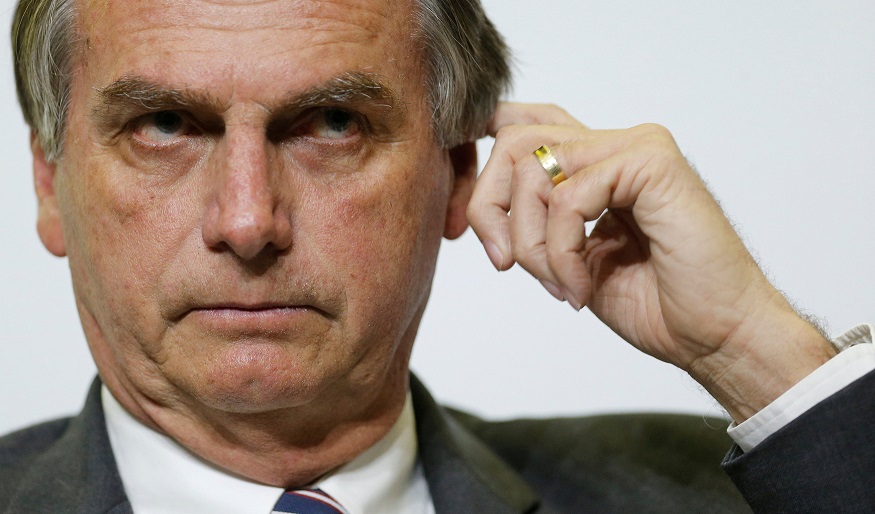by Gisela Pereyra Doval and Emilio Ordoñez
Sunday’s events in Brazil represent by far the biggest challenge to the democratic order since its recovery in 1985. Waves of pro-Bolsonaro militants invaded the Planalto Palace, seat of government, the Congress, and the headquarters of the Federal Supreme Court in a sequence that tried to mimic the takeover of the Capitol in the United States in 2021. This happens at a time when the brand new government of Luiz Inácio Lula da Silva is in process of settling in, taking measures of political weight, and making the message that there is a new chapter in Brazilian political life. This attempted uprising is a reminder that the echoes of hardcore bolsonarism will not go away easily, even with former president Jair Bolsonaro in self-exile in Florida.
In fact, this climate of political polarization and social tension was definitely already in place from the very moment of Lula’s victory in the second round last October. Continuous destabilization maneuverings such as roadblocks and camps crowded with “patriots” at the gates of military barracks were part of the political scenario in the middle of the long transition period. A scenario that counted on the silence of the military, a detached attitude of Bolsonaro – which extended to the remaining two months of his administration – and a decisive action of the security forces and the judiciary. This attitude continued after Lula’s inauguration, hoping that Bolsonaro’s departure and the political measures of the new government would wear down the initiative of the hardcore bolsonaristas.
Therefore, what happened yesterday did not surprise anyone but shocked all those who hoped it would never happen. Moreover, it can be interpreted as the trigger of a process of social polarization similar to the one occurring at the political level, considering not only the outcome at the ballot boxes, but also the struggle between the coalition political formations that make up the new Congress.
The seizure of the Esplanade of the Three Powers is a reminder of the tremendous challenges that Lula will have to face in order to recover the democratic climate. The domestic context, in which an intense minority with the capacity to act is not willing to recognize the most basic tenet of the democratic contract —that is, the very victory of the veteran PT leader—, does not help. Added to this are the social challenges that represent the central core of the historical action of that party, and the retaking of traditions in foreign policy. In addition, other obstacles run parallel —and this, to a certain extent— with the action of the mobilized nuclei of bolsonarism. Perhaps the most important of them is the new role of the Army, which, contrary to expectations, seems to be willing to play a more notorious and perhaps confrontational political profile. Especially if one considers the latest appointments to the Army’s senior staff. Moreover, the main remnant of bolsonarism at the institutional level will be, precisely, its penetration in the middle and lower ranks of the armed and security forces. The latter are at the centre of the controversy, accused of connivance with the demonstrators, all of which has already had its correlation in political responsibilities at the highest level in the Federal District.
In the context of a government that is taking its first steps, with an important social consensus, the administration’s response in the political and judicial spheres seems to reflect the government’s willingness to engage in a political struggle. It is also backed by a broad international support, in an attempt to isolate the extreme right and to strengthen the broad front that sustains its government.
However, some questions remain unanswered. These have to do with the characteristics of hard bolsonarism, which were clearly shown during the seizure of the headquarters of the three branches of government. One of them is the inorganic character of these crowds. We have spoken of Bolsonaro’s own position of being both disinterested and acquiescent, maintaining a line of both validating and condemning these demonstrations of force at the same time. This positioning has allowed him not to lose centrality or reference within these groups, without being linked to the direct planning of these events, at least for the moment. This lack of organization gives these movements a disruptive character that contributes to the scenario of extreme political and social polarization. The extreme scenario could limit the efforts for a greater deployment in social policies or in the development of its foreign policy, on the success of which could depend, paradoxically, the loss of political capital of these intense minorities.
All this leads us, finally, to the characterizations derived from the events that took place. In particular, concerning the issue of social polarization. Although these events have been considered as the trigger for a growing process of political polarization — and they probably will not be the last ones to occur—, the concept of polarization has generated some debate in political science. With respect to what happened on Sunday, particularly, the problem is that this analytical category would be framed within the dynamics of the democratic struggle, of which this uprising is certainly at the antipodes. It can be said that the ongoing process, which involves a growing political radicalization, undoubtedly proceeds from the aforementioned context of polarization, but exceeds it. This represents not only a challenge for analysts —among many others— but also for those who must provide political answers in a democratic framework, which is, ultimately, what is at stake today in Brazil.
Gisela Pereyra Doval is a researcher at Argentina’s National Scientific Research Council (CONICET) and a Lecturer at the National University of Rosario (UNR) in International Relations Problematics.
Emilio Ordoñez is a researcher, international analyst for Fundamentar.com and a radio columnist for several radio stations in Argentina and abroad.
